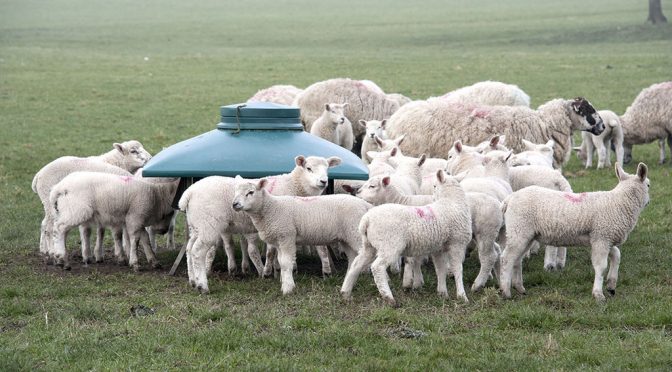Sheep are quadrupedal, ruminant mammals typically kept as livestock. Generally, sheep indicates the mammal which is hollow-horned, typically gregarious ruminant related to the goats, but stockier and lacking a beard in the male; one long domesticated especially for its flesh and wool.
Sheep Farm
A sheep farm is a place that use to sell wool and meat. It is not the latest concept of harvesting. Parenting this animal commenced really early occasion and it is one type of cattle farming. At that time sheep harvesting had been just for an ingestion goal. Nowadays, this type of farm is one sort of animal husbandry specifically handling the raising and breeding of domestic sheep. This harvesting is primarily based on raising lambs for meat, as well as raising lamb to produce wool.
Sheep Breeds
There are more breeds of sheep than breeds of any other livestock. You will discover several 1, 000 different sheep breeds over the world. There are more than 40 breeds in the United States only. At each birthing event Ewes usually give birth to one to three lambs. The process known as breeding, the technical term for all species is parturition. First-time Ewes are more likely to have single births, though twins are not uncommon in some breeds. Twin birth is more common in well-managed flocks and with many breeds of sheep.
Sheep Farming process:
Sheep farming with multi-face utility for wool, meat, milk, skins and manure, is not an easy task to do. You need to know, how to farm sheep? The concerns for farming are:
Sheep Housing:
Housing affects the breeding and parturition percentages. Usually the practice of shed parturition ensures higher breeding. Housing for sheep varies with the weather and season(s) of breeding. Management preferences of the shepherd are also important. If breeding will occur during periods of rough weather, more elaborate housing is usually required. On the other hand, if breeding will occur on pasture during periods of mild weather, plain housing enough.
Sheep Food:
Nutrition plays a major role in the overall productivity and well-being of the sheep flock. It is important that producers consider nutrition management a top priority. Mostly sheep eat grass, clover, hay, and other pasture plants.
Benefit of Sheep Farming:
Sheep farm is an excellent business prospect as you can start small and grow from there. It is very beneficial for a lot of reasons. A sheep farm can answer; where to buy sheep, is there any sheep for sale, does it have alpacas? Etc. However, the success of your sheep farming business will depend on three basic parameters that include the choice of their food, breed, and the overall management of the animals. Benefits of Sheep farming are given below –
- Anybody can start with low capital and low experience.
- It does not need an expensive housing to house them.
- Sheep have multi-faceted utility like meat, skin, wool, manure etc.
- The initial livestock are relatively cheap and it breeds rapidly
- Usually sheep eat varied kinds of plants and weed compared to other kind of livestock.
- It is not too much harmful to damage any tree.
- Sheep dung is also used as a valuable fertilizer.
- And, finally production of wool, meat and manure provides three different sources of income.
Article Source: http://EzineArticles.com/expert/Md._Ziaur_Rahman/1608866

